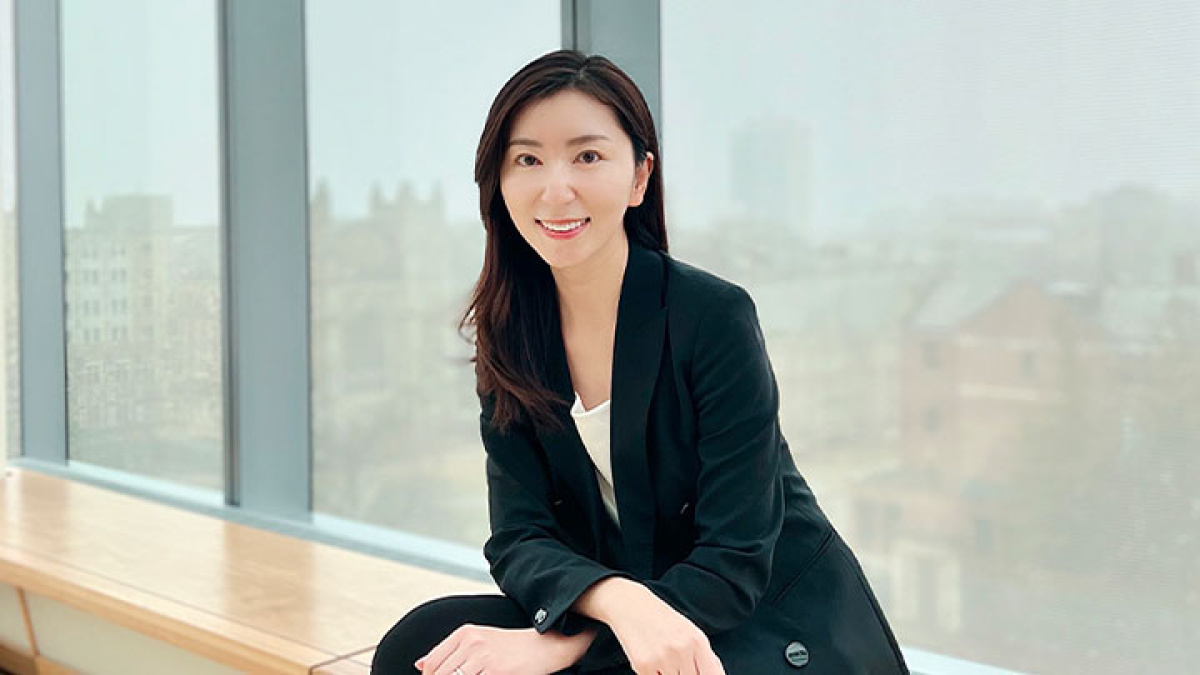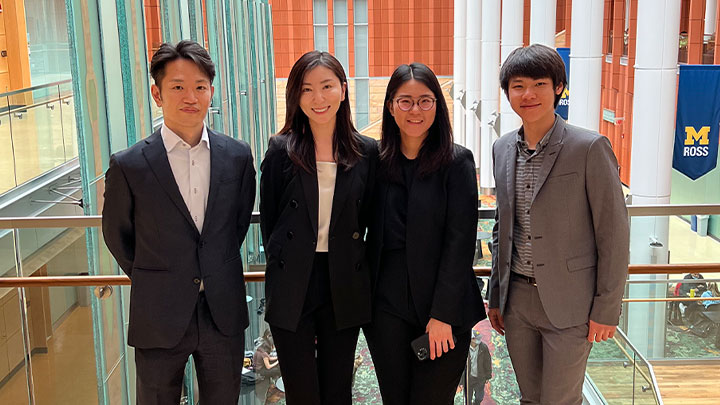
Wei (Stephanie) Chen, MBA '22
After working for seven years as an investor at the Beijing office of Draper Fisher Jurvetson, a Silicon Valley-based venture capital firm, Wei (Stephanie) Chen, MBA '22, decided she was ready for a change. Her career in VC had been rewarding; she learned about many different industries and witnessed four of the companies in which she invested reach IPO. However, Stephanie wanted actual experience running a business. As an investor, she had been on the outside looking in. "I really wanted to get first-hand experience managing a program or a project within one company, or leading a team to fight with our competitors in business," she said.
As she considered her next move, Stephanie reflected on her industry interests, specifically healthcare and cleantech. She saw these as promising spaces with high potential to serve the common good; yet, they remained an underserved area of VC investment.
I wanted to focus on an area like healthcare that could really help people — whole populations. I think this is especially relevant in China, which has an aging population. But in the VC world, this is not an easy space to enter."
Joining the Michigan Ross Global MBA
Stephanie began considering global MBA programs as a way to acquire that "insider" perspective of business management, and transition into business for health. She said she chose the Michigan Ross Global MBA for its many resources and connections in health, as well as its reputation and size: "The University of Michigan is so large, and many of its schools and programs are top-ranked."
Once in Ann Arbor, Stephanie noted the sense of community among her classmates. As Stephanie put it: "We are really close friends; it's like a family here." Stephanie and her classmates were also able to forge strong relationships with Michigan Ross faculty members.
We're also all very familiar with our professors; they know each one of us, and their teaching is really good. After we finished the core courses, many of us still chose their classes for our electives.
The majority of Global MBA students come from countries outside of the United States. Stephanie said this provided "an opportunity to closely understand many other countries — not only their cultures, but also their economic environments." She offered the example of a classmate who "interviewed me several times, since China is the most important foreign market for his company. We talked about the behavioral changes in the beauty industry and emerging competition."

Gaining New Experience
One course that had a significant impact on Stephanie was her operational management core course, which covered topics like inventory management, pricing, and reorder points — areas she had not been able to dive into at her VC firm. Though Stephanie thought the operations course was challenging, it was also, "really helpful for somebody like me who doesn't have a background in this area." Stephanie was also impacted by an action learning projects course facilitated in partnership with AT Kearney. Over the course of 14 weeks, students work in teams to address a major operations or supply chain management problem at a sponsor company, and benefit from weekly guest lectures from partners of AT Kearney. Of the guest lectures, Stephanie noted they were "Insightful and very relevant to the problems many companies face in the real world. We're able to see how consulting firms help their clients to overcome challenges."
Stephanie and her team worked on a project for Siemens Energy, which wanted to develop a U.S. market entry strategy for hydrogen fuel cells. The project gave her the opportunity to explore the industry of cleantech, how tech companies play a role in carbon emissions, and how energy can be saved through more strategic use of data centers. Stephanie said that in working on the project, she "learned a lot more than what I thought I would." She also noted how her team's assigned faculty member and AT Kearney coach introduced her to the hard skills required for effective consulting, as well as the soft skills, like client communication and developing compelling project narratives.
Participation in the AT Kearney course wasn't the only way in which Stephanie stretched her skills while in the program. She was also involved with the Consulting Club, which gave her more exposure to preparing for consulting roles across various industries, and the Healthcare Club, which helped her plug into healthcare opportunities within and outside of the U-M network. Additionally, Stephanie pursued electives focused on healthcare, including Healthcare Startups and Healthcare Strategy, which she said helped her gain a basic understanding of industry players, the connections between them, and unmet needs in the industry. As part of these electives, professors invited healthcare investors, healthcare startup founders, and senior managers from Michigan Medicine to share insights about the industry. Through these electives and throughout her time in the program, Stephanie said she was also intentional about making connections with students in the U-M Medical School and School of Public Health.
Ready for What's Ahead
Armed with a better understanding of end-to-end business management, and primed with more exposure to opportunities in health, Stephanie plans to return to Beijing after graduation to pursue her goal of working in a health-related tech space. Her longer term goal? Running her own venture capital firm, so that she can invest in companies that have the highest impact on the common good.




